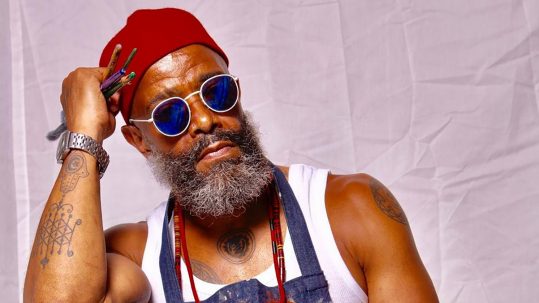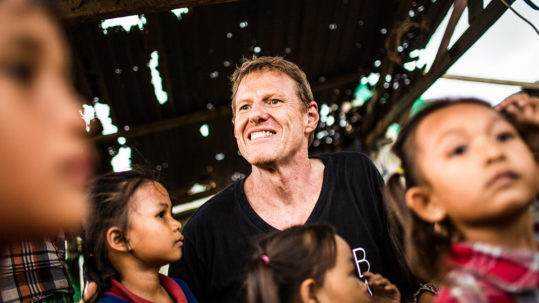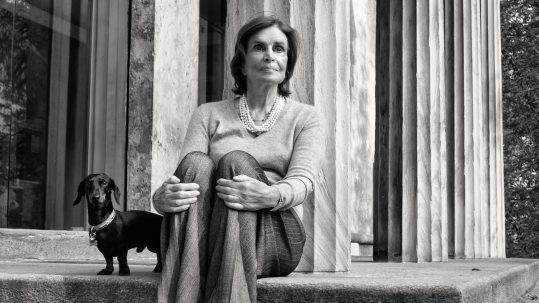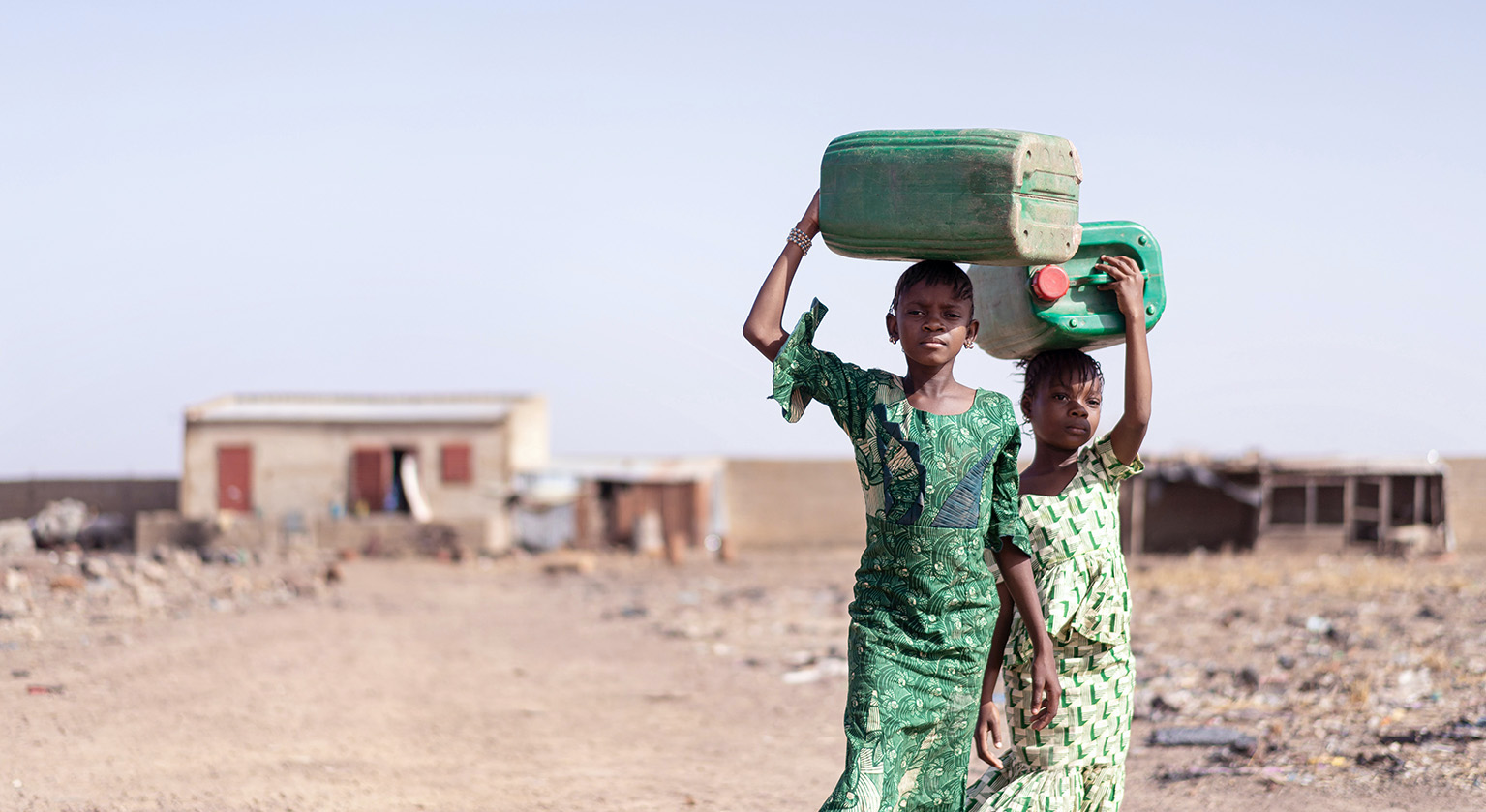
09 Jul Anna Cataldi
Photo: Royalty-free.
Anna Cataldi
Only a few names come to mind when we think of greatness, and Anna Cataldi is most certainly one of those. Through the various chapters of a very inspiring existence, Mrs. Cataldi’s achievements as an author, a war correspondent, and a human rights activist, are as important, if not more so, than her first act in life; this was in the film industry, as one of the producers of the legendary movie Out of Africa. From the besieged city of Sarajevo to Kabul or Mogadishu, Mrs. Cataldi’s contribution to the world as a UN Messenger of Peace for Kofi Annan, as a Goodwill Ambassador for the World Health Organization, and as a compassionate volunteer, makes her one of the greatest heroines of our times. I felt incredibly privileged when Mrs. Cataldi agreed to this second interview, which focuses on her work as a humanitarian, a writer, and a journalist.
By Victoria Adelaide | Aug 17. 2020
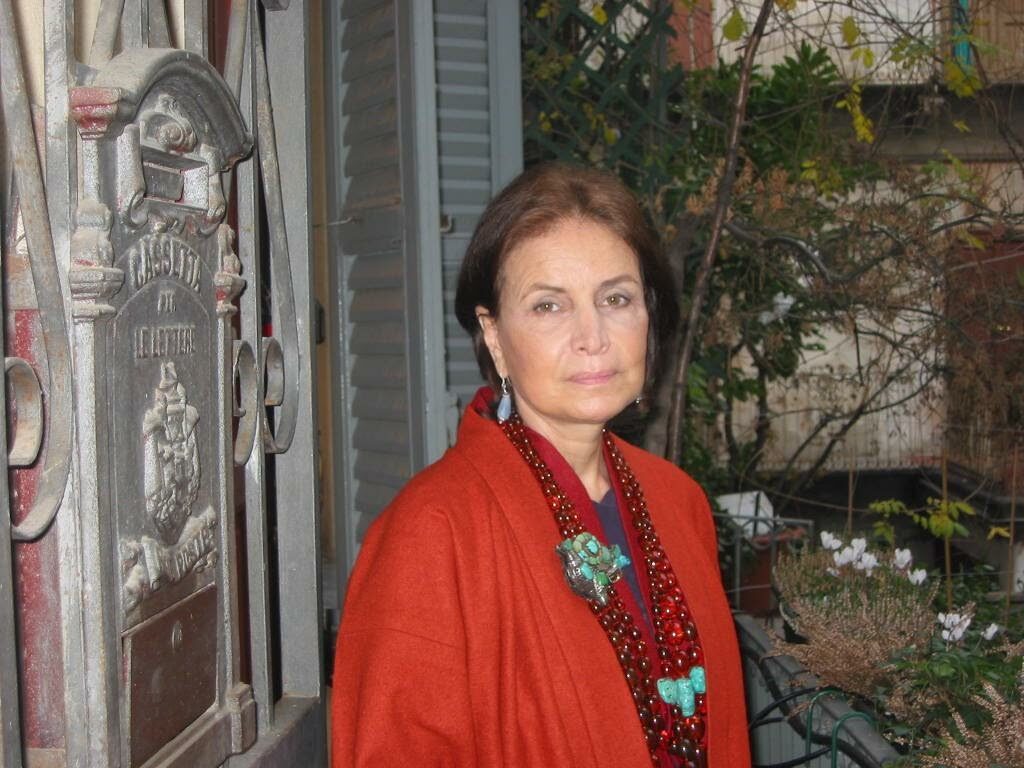
Victoria Adelaide: In 1992, you went to Somalia for the first time as a humanitarian. The trip was inspired by your great friend Audrey Hepburn. Can you tell us what you remember the most from that unprecedented experience?
Mrs. Anna Cataldi: It truly was a turning point in my life, something I had never experienced before. I was in Tuscany, and I saw some pictures of starving children in Somalia. I was horrified, so I called Audrey. Audrey was the Goodwill Ambassador for UNICEF; she told me that she was going to Somalia in September, and I wanted to go with her. She warned me about the difficulties of getting a visa to go there, but somehow I managed to go, hoping to join her and her companion. When I arrived in Mogadishu, she wasn’t there, and nobody could tell me where she was. I was working as a freelance journalist, and I was staying at the United Nations. So I left for Baidoa, a city in south-central Somalia where there were so many deaths; it was horrendous. Every morning we buried 400 or 500 people, they were dying in the street, they were dying absolutely everywhere. There were no volunteers or organizations there, just a few photographers, it was an absolute tragedy. I returned to Mogadishu for a little while; then, I fled to Italy. We have to keep in mind that Somalia was an Italian colony; therefore, Italy should have been aware and concerned about what was happening there, but that was not the case.
When I arrived in Italy, I was shocked by how indifferent people were and by the lack of interest in what was happening in Somalia. People were dying en masse, but nobody seemed to care. A short article was written in a magazine called Epoka, where they allowed me to write a contribution. People’s lack of interest in such tragic events is sadly something I have witnessed several times. I spoke with Audrey. She told me that UNICEF had requested a 24-hour ceasefire in Sarajevo to distribute winter clothes to the children and that she was on her way to Paris to do a video regarding the situation there. I told Audrey that she had to go to Sarajevo, but she said she couldn’t. Later, I discovered that she was already very sick. So I told her that I would go. UNICEF had organized a group of international journalists, and there was room for one Italian journalist. I took the assignment, and I went there for a magazine called Panorama. I arrived in Sarajevo to cover the operation of UNICEF. Still, UNICEF never turned up, the clothes meant for the children were never distributed, and the entire operation was a disaster. I stayed in Sarajevo, and over the next three years, I would be back either as a journalist, as a press officer for UNICEF, or as a freelancer. I also left with an eight-month-old amputee; his mother had died, and they couldn’t treat him over there. It was tough. We spent three days and three nights in the mountains trying to escape with the baby, under bombardments, and shootings. An Italian TV channel broadcast our escape, by satellite.
Back in Italy, a lot of media asked me to speak on TV. What’s interesting is that there were people from Sarajevo living in Milan. They had their mother, father, sister, and friends under siege. However, someone who has never experienced what it is to be besieged cannot understand it, because it’s a unique situation. We were a bunch of journalists over there, and to this day we still are like blood brothers. Christiane Amanpour was one of them, she is like a sister to me; and others that may not be as famous as her, but who won the Pulitzer and had many accolades and recognition for their work. Then, I wrote the book Letters From Sarajevo, which was translated into several languages. I kept going to Sarajevo for three years, even after Sarajevo’s liberation.
VA: Looking back, what’s interesting is that nothing could have predestined you to lead such a life. You were married to the heir of one of the biggest fortunes in Italy, you had a very mundane social life, so how did things get around to it?
AC: When the movie Out of Africa was released, it was a massive success. At the time, my husband and I were separated, and I was struggling financially. Because of the success of the movie, I could have had a career in the film industry, but my children were in Milan, so I had to make a choice, and I decided to stay with my children. However, I had all those connections with the film industry, because of Out of Africa. I was collaborating with a magazine called Panorama, I was writing stories about cinema, and because of that, I was connected with the press. So for me, it was not difficult to switch from writing a story about a movie to writing a story about war, as I was already working as a journalist for magazines.
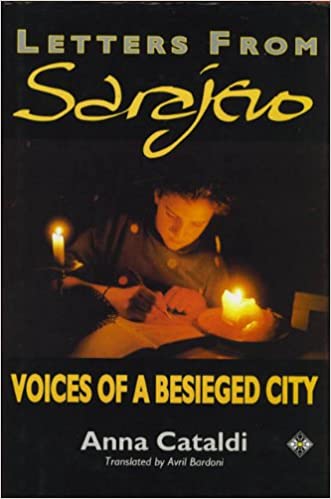
VA: To me, being a war correspondent is very different from being a regular journalist because you go to the hunt, it’s dangerous, you take risks. Were you not scared that it could be hazardous for your life?
AC: I had indeed experienced dangerous situations, like when I crossed Chechnya during the war, where there were no other journalists but me.
VA: What was it that made you want to do it, amid the danger?
AC: To be honest with you, I think it’s like a drug. And there’s another thing: you can only communicate with your friends, with those who are experiencing the same thing. To all others, you have nothing to tell them. As I said, I’m still very close to all the journalists that were in Sarajevo during the siege, because we understand each other. However, it’s an experience I wish on no one. What I discovered tragically, is that the idea that we are simple witnesses of what’s happening, that’s wrong. We are never only witnesses, we feel guilty, we are there, and we see things. Then we are confronted with our consciousness, conflicted, wondering, “Shall I forget everything? Or shall I speak out?” It’s heavy, and even if you decide to forget, you carry that burden and what you’ve seen with you.
VA: When you say, you cannot be only a witness because you also feel guilt: is that a guilt of not being able to help more? Can you elaborate?
AC: I was in Kabul with that great photographer, James Nachtwey, when they hanged three men. For a few days, we saw them build the scaffold. We knew they were going to hang these men. It was before the Taliban; there were no other journalists, no foreigners, there was nobody. I was there watching when they hanged them, and I passed out as it’s a horrible sight. After, you ask yourself, “What could I have done? I knew they were going to hang them.” I was asked, why did I watch? I watched, because what else could I have done? Being in the street nearby knowing they were going to hang these three men? What difference would it have made? When you experience something like that, it is something you can never liberate yourself from. When you are indirectly involved in all those things, when you experience war, witness people starving, massacres, when you watch the deaths, you can’t go back, it’s impossible.
VA: War is trauma. Following a challenging mission in Angola, you decided you would not accept another assignment again. However, you still did. How did you manage emotionally?
AC: I believe I was in a state of total unawareness. Regarding the mission in Rwanda, I went there as a Messenger of Peace for Kofi Annan. We saw the prisons in Rwanda, corpses in churches, and a lot of horrendous things. Also, we rarely speak of Burundi, but it was almost worse in Burundi than in Rwanda.
VA: And in Rwanda, your focus was on child soldiers, is that right?
AC: Yes, the mission in Rwanda was about child soldiers. Then, I had other missions for the landmines.
VA: How did you meet Kofi Annan?
AC: Kofi Annan was in charge of the United Nations operations in Bosnia. To go to Sarajevo with a humanitarian flight was very difficult, so, I contacted Kofi Annan, to have the authorization to fly to Sarajevo. Then we became very good friends. He was impressed by my work in Chechnya, as the story was in the Herald Tribune, it was published in a lot of newspapers; and also by other work, I was doing.
VA: So, after your mission as a Messenger of Peace for Kofi Annan, you also worked as a Goodwill Ambassador for the World Health Organization.
AC: When Kofi Annan ended his term at the United Nations, I was no longer a Messenger of Peace with the new Secretary-General. That was when the WHO asked me if I wanted to take care of the tuberculosis, and it has been one of the greatest passions in my life.
VA: Can you speak a bit about it?
AC: Tuberculosis is the story of men. Tuberculosis was a disease that affected anyone, kings, the poor, and the wealthy. We found it in the pyramids of the pharaohs, everywhere; everybody could have tuberculosis. Three years ago, I interviewed a Jewish woman who was in the concentration camp of Terezin during her childhood. There was a train that was going from Terezin to Auschwitz. One day, her mother told her not to play with another little girl who was her best friend. She asked why? And the mother said she should not approach that little girl because she had tuberculosis. So, at the time, tuberculosis was more feared than Auschwitz. People were thinking, “We may burn in the oven in Auschwitz, or maybe not. But if we catch tuberculosis we’re most likely going to die.” Nowadays, tuberculosis is curable with pills that you can take at home for eight months without being hospitalized. So, after all the war I experienced, the tragedy, seeing the deaths, being in charge of the tuberculosis was almost a relief, as I could deliver the good news in various countries of the world, that tuberculosis was curable. There’s a technical medical difference when it comes to the word we use between treatable or curable. For example, nowadays, HIV is treatable in a sense that you take medicine, you follow a treatment, then you can live, but you never fully recover. While tuberculosis is curable; well, at least in its essence, not in its resistant form. So it was fascinating because I could tell those who thought they were going to die that they could actually recover.
VA: You are currently working on the biography of Henry Dunant. Can you tell us about that, about his story, for those who may not know who he is?
AC: After the book on the life of Karen Blixen, and Out of Africa, I started to think of another book. I wanted to make sure I had something that I felt really passionate about. I thought of this man who fascinated me so much, Henry Dunant, who created the Red Cross. Dunant was a Swiss citizen from Geneva, from a middle-class family in the 1800s. Geneva was a very Calvinist city; he was very religious, episcopal, and Calvinist. Dunant was one of the founders of what we now call the YMCA. He didn’t do brilliantly at school; however, very young, he started working in a bank. At the time, France was occupying Algeria, and the French were exploiting the land, as did the bank. They asked Dunant to go to Algeria to monitor the exploitation, which was mostly agricultural. He went there and felt in love with the country. He invested in some land as he liked to have a windmill and things like that. However, things did not go as expected, he didn’t have enough land, not enough water, and he wanted France to give him the possibility to have more land. So he went to Paris, tried to contact various people but got nowhere. Dunant was a very adventurous individual, and he decided to ask Emperor Napoleon III for the land. He began pursuing him; however, Napoleon III was in Italy with his army, helping Italians fight Austrians who were occupying the north of Italy. Without knowing what to expect, Henry Dunant arrived in Solferino on the evening of June 24, 1859, on the same day when the most grueling battle of the century—The Battle of Solferino—took place, with thousands killed and thousands wounded on both sides, and all of that in nine hours. The French and the Italians won, with terrible loss on both sides. Dunant was there, the night of this bloody massacre, and he realized that nobody was taking care of the wounded or of the dead on the battlefield. He was horrified, he stayed there for five or six days, trying to help with the locals. Then he got back to Geneva in a state of shock. He wrote a book called, A Memory of Solferino, that generated an incommensurable emotion.
With four other people from Geneva, he founded the Red Cross in 1864 and convinced 16 governments to be a part of it. What was the most innovative thing about it was the idea of neutrality. When you are a soldier you fight against the enemy, but from the moment you are wounded you are not a soldier anymore, you are a human being, and it doesn’t matter what side you are on in the battlefield, you are entitled to be taken care of. That is one of the Red Cross principles, which was absolutely revolutionary because at the time the only medical teams were the military and they were only taking care of their people. For example, the legendary British nurse, Florence Nightingale, became very well known for the incredible work she did to heal the soldiers. Yet she spent her entire life caring solely for English soldiers. Today there are 17 million volunteers and 500,000 employees worldwide in the Red Cross. The Red Cross has become so huge!
So, Dunant and his co-founders created the Red Cross and the Geneva Convention. Everything started there. However, Henry Dunant was so invested in the Red Cross that he neglected his businesses in Algeria, and went bankrupt. He lost a lot of money, as well as other people’s money. He got kicked out of Geneva and led a miserable life for several years. He slept at a train station in Paris; he was starving, and homeless. He ended up in a small village in Switzerland, where he was so sick that a doctor put him in a hospital room where he stayed as a recluse for 20 years until he died. In Geneva, nobody wanted to hear about him; people denied he was the founder of the Red Cross and completely erased him. However, someone discovered him, and a few years before his passing, he received the first Nobel Peace Prize in history. That is an incredible story! I’m passionate about writing Henry Dunant’s story, as he made a statement, “Human beings have to be respected whether they are allies or enemies.” Not so long ago, I was working on his biography, but I had to take some time to reflect as I needed to put things in perspective, considering what has been happening in recent months with the coronavirus situation.
VA: I’d like to speak of the Crimes of War Project that you founded with a few others some time ago, which is also somehow linked to Henry Dunant.
AC: Yes, I was in Geneva earlier this year to do some research on Henry Dunant, and I met the chief of the Red Cross, the chief of the press office of the Red Cross, and a few others. They asked me how I had the idea to write about Henry Dunant. When the siege in Sarajevo ended, with four journalists, I founded the Crimes of War Project based on the Geneva Convention, created by Henry Dunant, following the battle of Solferino. These conventions have evolved as they are regularly updated. We saw so many horrors, but we didn’t know how to phrase it to denounce what was a violation of the Geneva Convention. We wrote a book where each journalist described a war crime they had witnessed, then that war crime was examined through the Geneva Convention. However, after 15 years, we ran out of money, so we had to stop the project.
VA: Right, I know you were also in New York a few months ago and met with key people regarding the Crimes of War Project. Could you give us an update on what may have been discussed and decided?
AC: During my trip to New York, I met with one of the founders of the Crimes of War Project, Gilles Peress, who is the one who came up with the idea to do the book on war crimes. I also met Jeff Streeper, who did the graphic design for the website and the artwork for the book. We had a meeting and decided to restart the Crimes of War Project. War sadly exists, but maybe we can limit its brutality.
...War sadly exists, but maybe we can limit its brutality.”``


